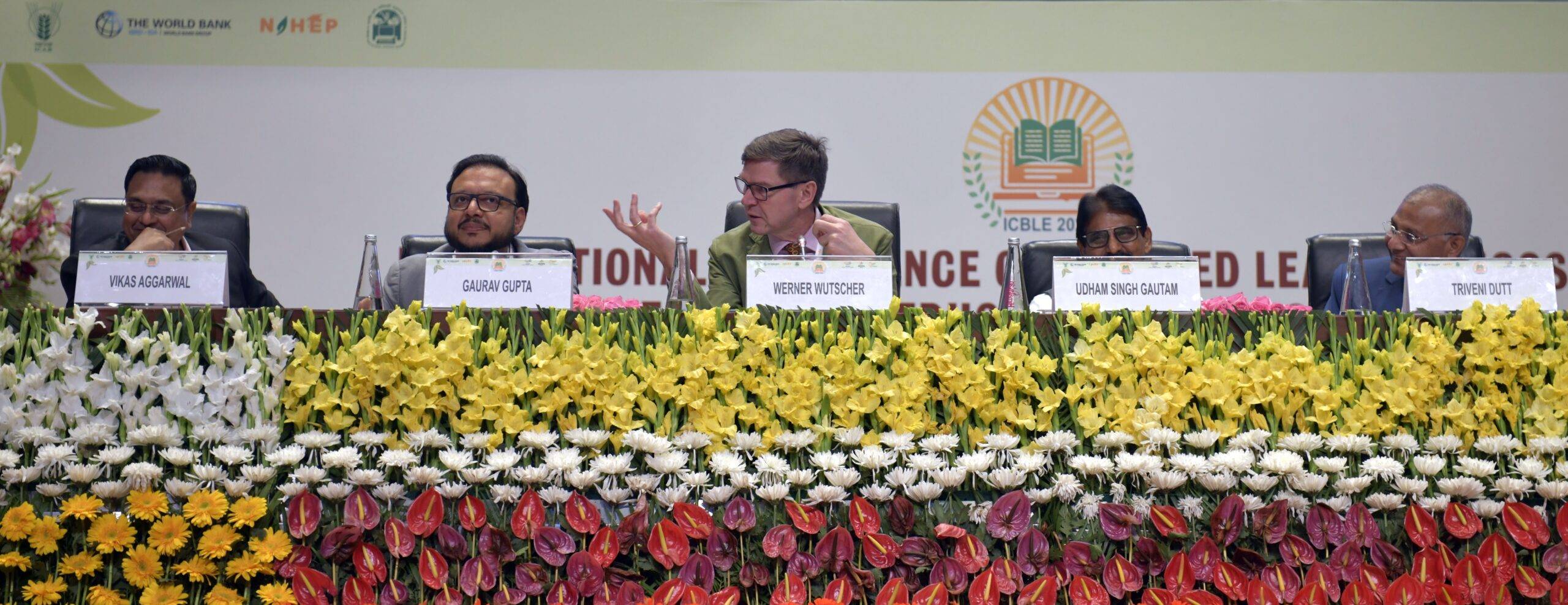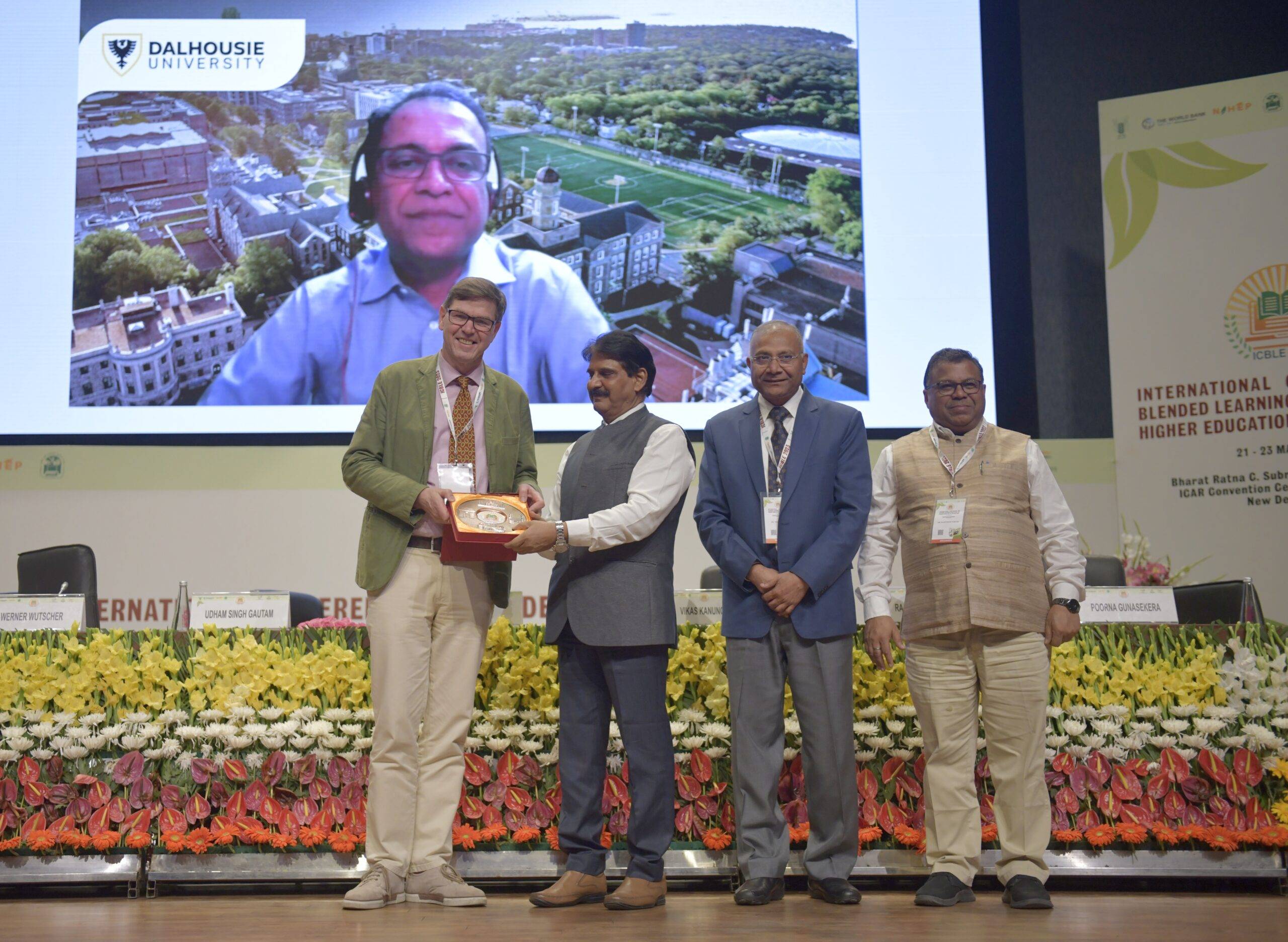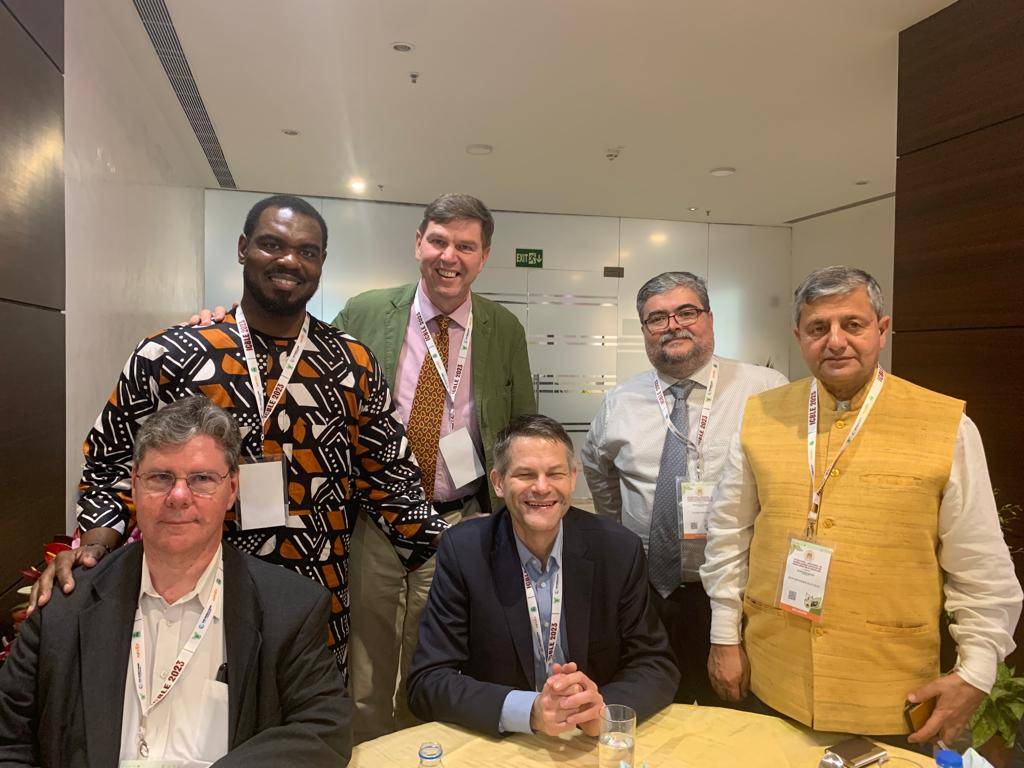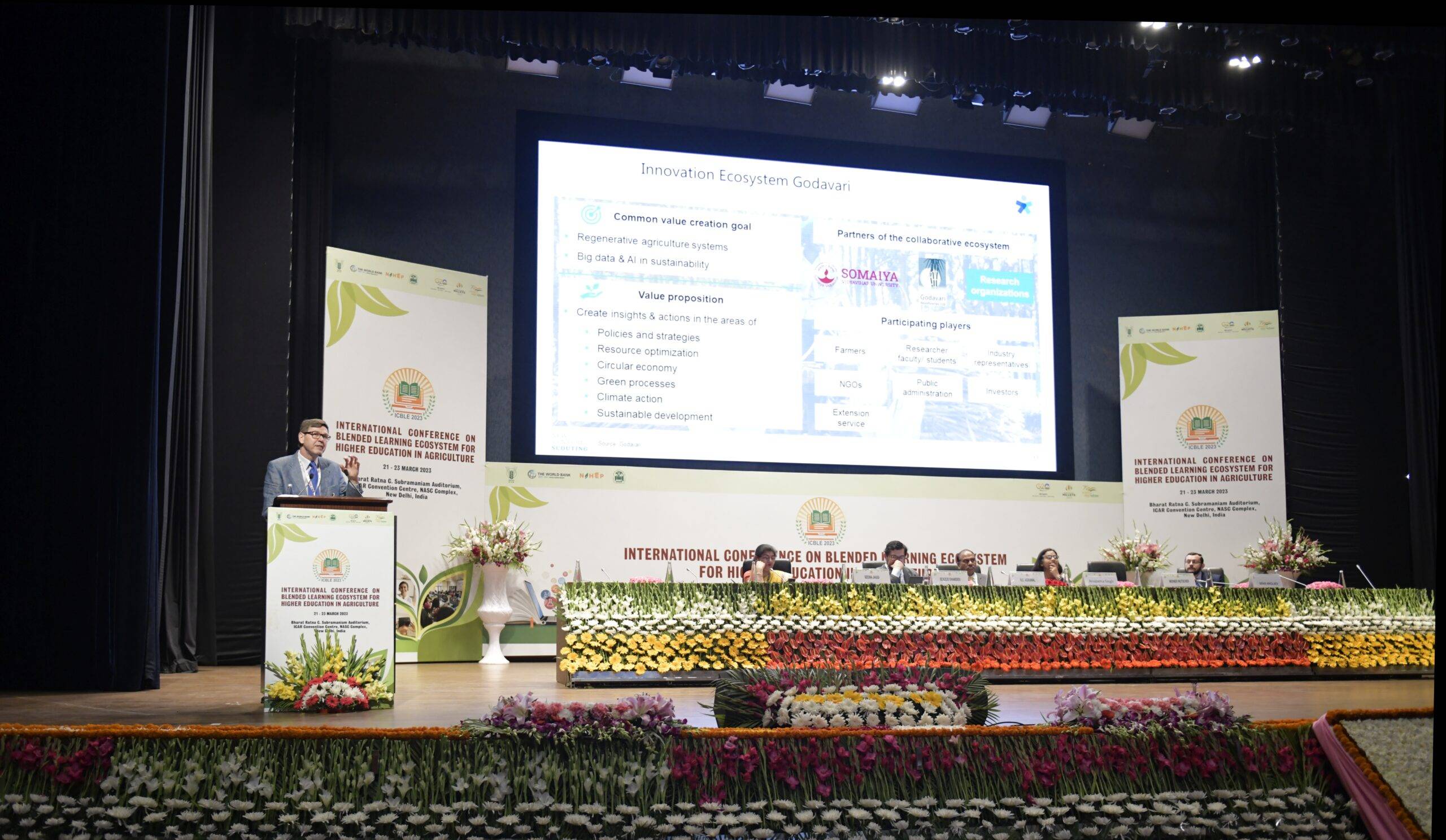Werner Wutscher, Founder and Managing Partner of New Venture Scouting recently delivered a keynote on invitation of the World Bank with the topic “drawing from global experiences of higher agriculture education and innovation on agriculture and agribusiness development” at the conference on “Blended Learning Ecosystem for Higher Education in Agriculture” in New Delhi. The conference was organized by the World Bank and the Indian Council of Agricultural Research.
The speech emphasized the ongoing requirement for transformation in today’s society, particularly in the agriculture sector. Several challenges were identified that farmers and agribusinesses face, including rapid changes in technology, climate change, and fragmented value chains. To address these challenges, three main strategies were proposed: fast, nonlinear thinking; creating innovation ecosystems; education

Firstly, the startup world has mastered creating new solutions quickly by applying nonlinear thinking. This approach tests new ideas quickly on the market via Minimum Viable Products, or prototypes. This approach enables businesses to respond to customer feedback within days or weeks rather than spending time on time-consuming planning and business modeling.
Secondly, holistic innovation involves creating an ecosystem around it. This is key to finding new ways of collaborating among different players in the industry and even outside the boundaries of traditional agriculture. An innovation ecosystem is a joint structure of partners through which they interact to deliver a value proposition to end customers (based on Adner, Winning the Right Game, 2021). In this setting, a multi-stakeholder approach is necessary, where representatives from agriculture, the business world, politics and administration, civil society, and educational institutions such as universities work together.
Thirdly, education is the glue holding everything together. Because of its high fragmentation, the agricultural sector needs communities of practice, blended learning, and digital programs (e.g., MOOCs) to build up innovation ecosystems. Examples of innovation ecosystems from India involving education are the Smart Agri Project by VodafoneIdea (https://www.socialapphub.com/knowledge-section/article/detail/62c295efed00f36cf08c7e3c) or the Centre for Sustainable Development and Climate Action at Somaiya University (https://csdca.somaiya.edu/en).
In conclusion, Werner Wutscher emphasizes that the agriculture sector needs to invest in policies, structures, and capacities to develop innovation ecosystems rather than just new products. These ecosystems are held together by common goals and mutual trust, and blended learning is one of the most critical prerequisites to building this base.




